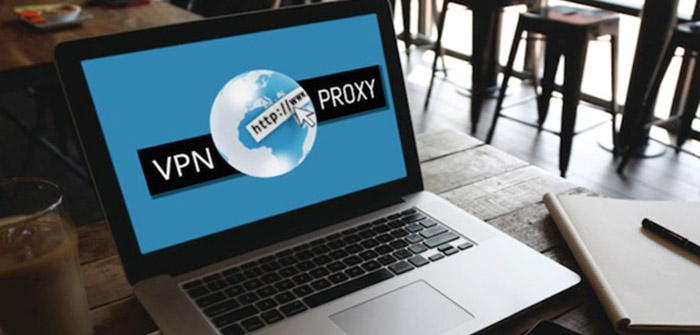Every week, or at least regularly, there is a major story that involves leaking of user data, encryption, plenty of concerns on digital privacy, or snooping issues. When you read articles on them, they will talk about the good things that can happen when you take the time to increase the security of your internet connections, such as using the most secure VPNs when you are using any public Wi-Fi network, but they skimp on the details, or do not explain them as well.
One question that seems to occur is what exactly the differences are between a VPN connection and a proxy server, and how they will operate. If you are looking to use a tool to increase your security, you need to know the right tool to help you accomplish the task ahead. There are plenty of differences between VPNs and Proxies, even though many might confuse them on a regular basis – and this is even more difficult because the two seem quite similar.
Even though they are different in many ways, proxies and VPNs will share one trait: they will allow you to connect to the internet while pretending to surf from somewhere else. They will however, differ in how they accomplish this goal, which we will hopefully help you to understand as you read this article.
What are the differences between the two?
The major reason for using both proxies and VPNs is to create connections between remote computers or devices and the host computers or devices, and they do it through hiding the IP of the host computer and make it secure against intruders.
The main difference between these two though is:
- Proxy servers will hide your IP address in order to allow the anonymity of your network ID, concealing it, or hiding it. It will do this through features such as data caching, sharing of network connections, and filtering of network data and creating firewalls. Because of this feature, proxy networks became quite popular in countries where governments tried to limit the internet access of their citizens.
- VPNs, on the other hand, will have greater advantages over proxy networks because they will create tunnels in the public internet space, and the tunnel exists between hosts or computers. It will form the tunnel through a process known as encryption, where data packets are encapsulated and made private.
The VPN will do this through a variety of encryption protocols. Instances of these protocols include TLS, OpenVPN, PPTP, IPSec, SSL, and L2TP. These will serve to encrypt this data, and then add new headers. The eventual result is companies reducing the expenditure of leasing connection lines, and relying more on high-speed routing abilities of the public internet space, in order to securely transfer more data.
What VPNs are about?
VPNs, also known as virtual private networks, are encrypted connections between public networks (in this case, the internet) and private networks. The information that travels between the public and private networks is transported securely, and the information is in the form of packets.
The aim of the VPN is creating a network that is virtually private, though physically public. The network is in private form, since it will ensure that the privacy of the user or organization remains internal and virtual, as it will not use actual WANs. Other than that, VPNs will give you a mechanism that allows you to use authentication and integrity protection measures, which will include encryption.
VPNs will give you a connection that has high levels of security. The difference is that you will not require to use specific cabling to connect the organization or individual that wants to use it. The result is that a VPN will combine the benefits of using a private network (due to its security and reliability) with those of public networks (as they are easily available at a cheap cost).
What proxies are about
Proxy servers are software or computers that will act as intermediaries between the actual server and the client. It will usually mask the IP address of the client, and it will instead use anonymous network IDs to connect to networks. These servers will decide the level of flow of application traffic, as well as performing other functions such as data caching, network connection sharing, and network data filtering.
How proxy servers operate
- An interior user will use an IP/TCP application to communicate to the proxy server – such as using Telnet and HTTPS.
- The proxy server will then communicate back to the user by asking about the remote host that the user needs to establish a link to promote communication, such as having a domain name or valid IP address. It will also ask for the password and user ID necessary in order to access the services that the proxy server uses.
- The user will then provide the information, and it will go through the application gateway.
- The proxy server will then access the remote host on the user’s behalf, and then transfer the data packets to the remote host.
When you contrast proxy servers to packet filters, you will notice that the former is more secure to a larger extent than the latter. The reason is that you will usually detect if a specific user can work with an IP/TCP application or they cannot, rather than resorting to investigating every packet and see if it follows the rules. Proxy servers have their disadvantages though, because they have high overhead costs, compared to the numbers of connections you can make.
A summary of the important differences between proxy servers and VPNs
- VPNs will give plenty of security through integrity protection, authentication, and encryption for traffic, while proxy networks will not give much security over the connection (unless you use certain secure proxies).
- A VPN will create a tunnel, which will then connect two firewalls in systems. Proxy networks, on the other hand, will not create these tunnels.
- A VPN will function at the firewall, while proxies will function at browsers.
- Proxies will use a variety of protocols like FTP, HTTP, HTTPS, SMTP, and Telnet. On the other hand, VPNs will use protocols like IPSec, L2TP, PPTP, and so on.
Final thoughts
Proxies are a great option to use when you want to hide your identity as you do trivial tasks, such as ‘sneaking’ into other countries to watch movies, but VPNs will protect you from more serious threats, like snooping.






